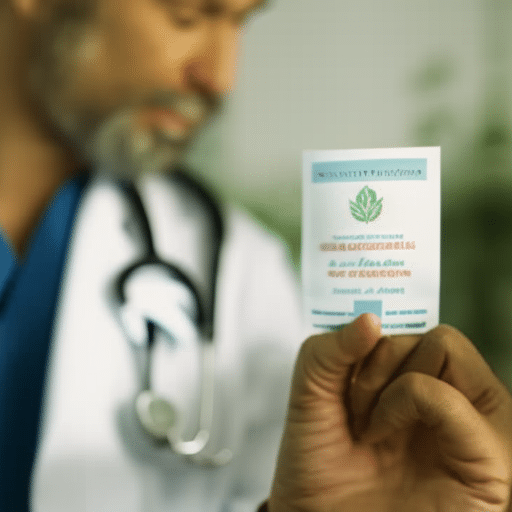Embarking on the journey to obtain medical cannabis in Delaware involves a series of steps that are critical to follow for legal and safe access.
Table of Contents
As you delve into this guide, you’ll uncover the essential eligibility requirements, streamline the registration process, and establish connections with licensed healthcare providers.
Gain insights into selecting the right dispensary and understanding the legal limitations on purchases.
This resource provides a comprehensive roadmap to explore the healing possibilities of cannabis, ensuring you navigate this therapeutic avenue with utmost confidence and adherence to state laws.
Equip yourself with the knowledge to manage your health with medical cannabis, all within Delaware’s regulatory framework.
Eligibility Criteria for Patients

While you may be considering medical cannabis as a treatment option, you’ll need to meet specific eligibility criteria set by Delaware law to qualify for its use. The state mandates that patients must have one or more of the established qualifying conditions, such as cancer, multiple sclerosis, or chronic pain, among others. It’s imperative to consult with a state-licensed physician who can certify your condition as part of the application process for the Medical Marijuana Program.
Additionally, you’ll encounter application fees that are non-refundable and must be paid when you submit your application. These fees cover the administrative costs of processing your eligibility.
Registering for the Program

Once you’ve confirmed your eligibility, you’ll need to register for Delaware’s Medical Marijuana Program through the state’s official health department website. The application process involves several critical steps to ensure compliance with state regulations.
You must accurately complete the required forms, submit the necessary documentation, and pay the associated program fees.
To aid in visualizing the steps, consider the following:
- Fill out an online application form, ensuring each field is meticulously completed to avoid any delays.
- Uploading clear, legible copies of identification documents and physician certification.
- Processing a non-refundable payment that covers the cost of your application and annual registration.
Be mindful that adherence to the program’s stringent guidelines is imperative for the successful acquisition of a medical cannabis card.
Finding a Certified Physician

Securing your medical cannabis card in Delaware necessitates consulting with a certified physician registered with the state’s Medical Marijuana Program. To ensure compliance, you must select a physician who’s completed the required physician training for cannabis authorization. This ensures they’re knowledgeable about the intricacies of medical cannabis and its regulatory framework.
Begin by researching physicians who’ve the credentials to recommend medical cannabis. You’ll find a list available through the Delaware Division of Public Health.
Once you’ve identified a suitable physician, proceed with appointment scheduling. It’s critical to prepare for this appointment by gathering any medical records relevant to your condition, as this will facilitate an informed discussion about whether medical cannabis is a suitable treatment option for you.
Visiting Dispensaries Legally

After obtaining your medical cannabis card, you’re eligible to visit state-licensed dispensaries in Delaware. When you enter, present your card along with a valid ID to verify your patient status.
Be aware of the dispensary etiquette to ensure a smooth experience:
- Knowledgeable Staff: Engage with the staff who are well-versed in therapeutic strains and can guide your selection based on medical needs.
- Secure Environment: Expect to encounter security measures aiming to ensure safety and compliance.
- Product Variety: Explore a range of products, from flowers to tinctures, tailored to different medical conditions.
Remember to inquire about payment methods, as dispensaries may vary in their acceptance of cash or card transactions. It’s important to adhere to these regulations to maintain access to your medication.
Understanding Purchase Limits

As you familiarize yourself with the dispensary environment, it’s crucial to understand Delaware’s medical cannabis purchase limits to manage your supply legally and effectively. Adhering to the state’s regulations ensures you stay within the legal framework while considering Dosage Guidelines and Strain Selection for your needs.
| Quantity | Time Frame | Product Type |
|---|---|---|
| 3 ounces | 14 days | Flower |
| 1,500 mg THC | 14 days | Extracts/Concentrates |
| Variable (by-product) | 14 days | Edibles |
| 1 ounce | Per Day | On-Site Consumption |
Keep in mind that these limits are in place to prevent misuse and diversion. Your healthcare provider may guide the appropriate dosages and strains to suit your medical condition, but it’s your responsibility to ensure you don’t exceed the stipulated amounts.
Frequently Asked Questions
Can Out-of-State Medical Cannabis Patients Purchase Cannabis While Visiting Delaware?
You can’t buy medical cannabis in Delaware as an out-of-state patient due to strict state regulations. Delaware lacks patient reciprocity, so your out-of-state status doesn’t grant you purchase rights while visiting.
How Does Delaware Protect the Privacy of Medical Cannabis Patients?
Delaware ensures patient confidentiality through stringent data security measures, safeguarding your medical cannabis records from unauthorized access, in compliance with regulatory standards to maintain your privacy rights in a clinical setting.
Can Patients Grow Their Medical Cannabis at Home in Delaware?
You can’t grow your medical cannabis at home in Delaware; patient cultivation is prohibited. Homegrown regulations are strict, ensuring only licensed dispensaries provide medical cannabis, maintaining privacy and regulatory compliance.
Are There Employment Protections for Medical Cannabis Patients in Delaware?
You’re protected against employee discrimination in Delaware for lawful medical cannabis use, but workplace policy can still impose restrictions, especially in safety-sensitive positions or where federal regulations mandate a drug-free environment.
How Does Delaware Handle the Use of Medical Cannabis on Rental Properties?
In Delaware, your tenant rights include negotiating medical cannabis use within lease agreements. However, landlords can prohibit it on their properties, and federal law may impact these rights, so review your lease carefully.
Conclusion
In summary, the journey to obtain medical cannabis in Delaware can be likened to solving a multifaceted puzzle. It’s imperative to ensure eligibility requirements are met and that registration is completed with precision.
Securing a recommendation from a certified physician is a crucial step, as they’re instrumental in advocating for your medicinal needs.
Dispensaries serve as the authorized providers where you can legally acquire your medication. Be mindful of the state-mandated purchase limits; they’re designed to protect your well-being.
Maintain vigilance in staying informed and adhere strictly to regulatory compliance, as these actions pave the way to therapeutic relief within the legal framework.

